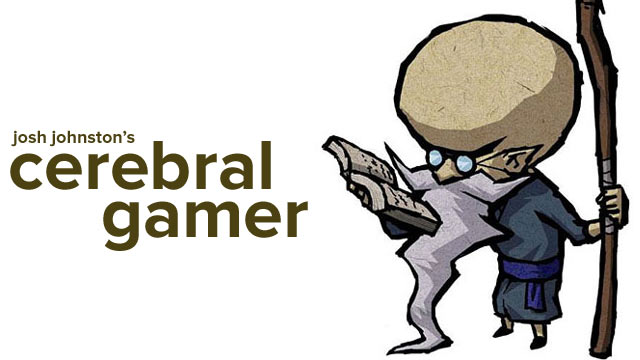
|
Last week, after 150 hours of seemingly endless gameplay, I parted with Monster Hunter Tri. It was not an easy decision, as the game is without peer on Wii in several categories: depth, breadth, online infrastructure, social elements, keyboard functionality, and enough offline and online content to easily carry a player through many more hours than I put in. At the time I stopped, I had completed almost all of the offline quest save for a few post-plot bonus missions, and I was about 60-70% through the online quests, with a Hunter Ranking (HR) in the low 40s.
I did not get rid of the game because I tired of it; quite the contrary, I played it quite religiously until the very night before I parted with it. Nor did I get rid of the game because of some dissatisfaction with it (although I was reminded of the perils of social gaming: more on this later); the game ran smoothly and sucked me in in ways no game has on Wii, period.
To understand why I got rid of the game, I should step back and trace a bit of my history.
Guild Wars, 2005
For me, Monster Hunter Tri was a homecoming of sorts. Five years ago, I got my introduction to the world of online MMOs with ArenaNet’s Guild Wars. Guild Wars was (and is) a relatively light MMO compared to, say World of Warcraft, but Guild Wars had several things going for it, including its robust PvP and the fact that it had no monthly fees. I dabbled a bit with a free trial of City of Heroes and watched a friend play World of Warcraft, but I was not interested in paying that kind of money. (I also personally knew a guy who had flunked out of college after playing WoW six to eight hours a day, which probably scared me away from Blizzard’s game.)
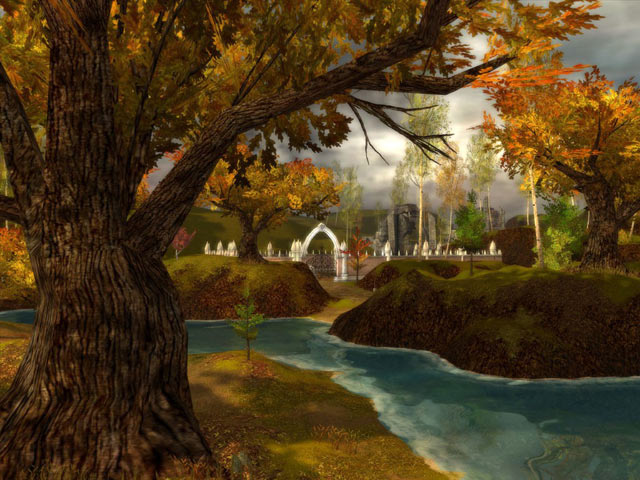
In any event, Guild Wars was an awakening for a guy who had long played single-player RPGs but never before indulged in online co-op. The wonder of banding together with a group of other real-life people to face desperate foes was a true experience. Equally moving was talking to those people through text chat; I still recall talking with a soldier whose gameplay with us was a respite from his grim tour of duty in Iraq.
As with many MMOs, Guild Wars brought thrilling heights and deflating lows. As a healing monk, I experienced the thrill of joining three other people in completing the difficult and elusive Titan Quests. I also experienced the humiliation of being unceremoniously kicked off of a PvE party after a disastrous first stint as a specialist known as a protection monk, one of the worst moments of my gaming career. That debacle bothered me for days, and while those of you who don’t play MMOs may not understand why, there is a psychology of MMOs that runs deep, both in its joys and its sorrows, in ways that most other game experiences do not. The experience did have its silver lining; I purposed to learn the protection monk trade and not let history repeat itself, and by the time my tenure with the game ended I had evolved into a pretty good one.
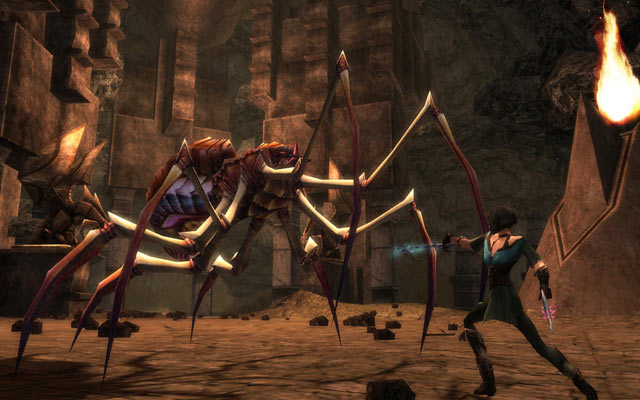
Of course, my run with Guild Wars did come to an end, as all things do. I finally gave up, in part, because character progression eventually seemed to disappear and the future installments to the game didn’t appear to offer anything new. (The fact that the game had a level cap of only 20 didn’t help.) I also gave up on Guild Wars because of life factors – I was on the cusp of marriage, and it just seemed time to move on to other things. Even so, when I finally logged out for the last time I had played through the main quests of four different characters and soaked nearly 450 hours – nearly 19 full days – into the game’s many quests and campaigns.
Monster Hunter Tri, 2010
When I was first tasked to review Monster Hunter Tri for Nintendojo, I had no prior exposure to the Monster Hunter franchise and I scarcely expected to find a game that bore so many similarities to Guild Wars and modern MMOs. In fact, my first impression of the game was bad – the stripped-down demo handed out at GameStop left me skeptical of the game’s value, and I expected to find little more in the final release. Imagine my surprise, then, as I came to realize out that MHTri possessed many of the qualities I had loved all those years before, and even added some elements, like armor crafting, that made the game uniquely appealing. Monster Hunter Tri was, if not an MMO, at least a close cousin of one. Surprise quickly turned to joy and before long I was hunting monsters right and left, offline and on, experimenting with the game’s different weapon styles. I eventually grew quite fond of the hammer, which offered high attack power without slowing a character down the way some other weapons did.
The hours rolled by, and my stash of equipment grew ever stronger. This game grew on me with a passion. This was the online game finally realized on a Nintendo console, everything Phantasy Star Online was unable to do back on GameCube. This was the game that made amends for all the online co-op snubs Wii owners have gotten over last few years. This was the online infrastructure that didn’t behave badly like Nintendo’s did. Capcom had found the Promised Land.
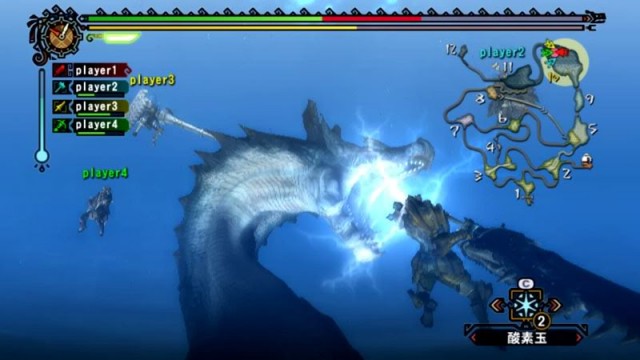
It was like Guild Wars all over again, both for good and for ill. I forged networks of friends I could band together with, and we crusaded in dramatic clashes against enormous foes. I watched my allies perform all manner of bravery, knocking friends out of the way just before they were to be killed or guiding less-experienced players through difficult, urgent quests that had to be completed before one could advance. On some occasions I was the recipient of these brave acts, while at other times I was honored to be the one lending the hand. Keyboard text chat, in all its simplicity, opened up a world of conversation whereby I could learn about others’ lives: their families, friends, and jobs.
There was that other side, too, the jerk side of people that reminded me why Nintendo’s aversion to online conversation has its virtues. I met the divas, the demanders, the twelve year-old who tried to act like a field commander and kept dying instead. The defining low, though, came from someone of indeterminate age who called me all manner of names after I made a judgment call on the battlefield that led to our failing the mission. (Short version: two of my allies were dazed and low on health and I made a quick decision to try and draw the monster away with attacks rather than run over and hit the allies to de-stun them. The monster ignored me, they both died, and the mission failed because we had reached our death limit.) I ignored his verbal assaults and calmly tried to explain my thought process, but he simply cursed more and told me to leave the city.
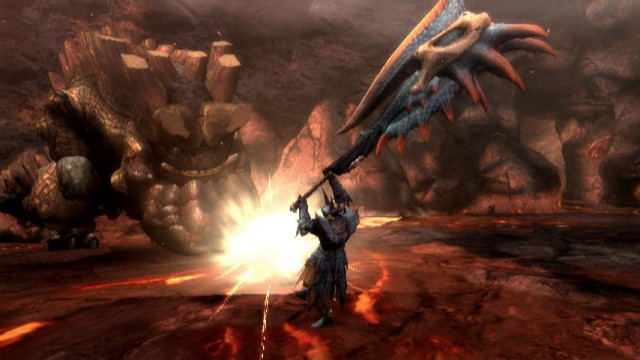
I fumed about his comments for days, much as I had after the protection monk disaster on Guild Wars back in 2005. (As I remarked earlier, only those who have played these sorts of games can fully understand why they can impact a person so.) Much like that, too, there was an important revelation that followed, only this time my conclusions were quite different. This time, I realized that my reaction to his comments showed just how enmeshed I had become with the game, it seemed for ill. It had come to dominate my gaming time at the expense of everything else. Good games were gathering dust because Monster Hunter Tri was far more compelling… perhaps too compelling. More ominously, my experiences in the game were leaking out and having a noticeable on my daily psyche.
In its own way, Monster Hunter Tri had become Tolkien’s One Ring. It gave me everything I asked, but it had come at a price. I focused on little else gaming-wise and the need for it seemed bottomless. I wanted to put it on the shelf, but whenever I set it aside for another game I got bored after a few minutes and wanted to come back to Monster Hunter Tri, to complete just one more quest, to do just one more farming expedition, to fashion just one more weapon or sculpture. It became clear to me that, at least for the foreseeable future, no other game would be played while Monster Hunter Tri was in my home.
So I sold it.
The Aftermath
When I finally put the game in the mail, on its way to another owner, I felt like Frodo sending the Ring into the fires of Mount Doom. On one hand, it saddened me to think that my Rathian-clad hammer wielder might never rise to strike another Barrioth or Jhen Moran. At the same time, there was an undeniable relief that came from knowing that my way forward was clear, never again to be obstructed by the urge to venture out to the Village or the City.
Later that evening, hours after I had come home from the post office, I went over to the Wii and noticed the USB keyboard next to my Wii, conscious that it might not be used again. I put it away and I pulled out Red Steel 2, which I had recently borrowed from the library. Placing the disc in my Wii, I ventured off into the world of MotionPlus-enabled swordplay. It was a peaceable, entertaining evening of gaming.
More importantly, I had begun the process of moving on.




 ShareThis
ShareThis








I’m honored to have made the cut for ND’s Best of 2010. It was a bit emotional to go back and re-read the account of Monster Hunter Tri. It’s definitely one of those games that was so good it was bad. Tri’s place atop my Wii usage statistics (by a good 60-70 hours over the next highest game) is a silent reminder of just how dangerously engrossing it was.